As part of Black History Month, members of CFG's new Diversity Working Group have been talking about the black people who have inspired their lives. Read on to learn about some of those incredible people.
Recent events and the Black Lives Matter protests have sparked a lot of conversation in our workplaces around combatting racism and white supremacy.
In response to that, CFG staff members Natalie John and Cordelia Simmons launched a Diversity Working Group and Book Club to help others at CFG learn more about the issues, explore how to be better allies, and promote equality and diversity.
As part of Black History Month, members of the group have pulled together a list of the black people who have inspired us. Here are just some of those people.
We hope you find it as powerful and inspiring as we do!
Maya Angelou – Sarah Boorman, Events Manager
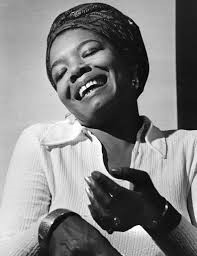
Maya Angelou was an American poet, memoirist, and civil rights activist. She published seven autobiographies, three books of essays, several books of poetry, and is credited with a list of plays, movies, and television shows spanning over 50 years. She received dozens of awards and more than 50 honorary degrees.
She was active in the Civil Rights Movement and worked with Martin Luther King Jr and Malcolm X. In 1993, Angelou recited her poem 'On the Pulse of Morning' at the first inauguration of Bill Clinton, making her the first poet to make an inaugural recitation since Robert Frost at the inauguration of John F Kennedy in 1961.
One of her most famous pieces of work is 'I know Why the Caged Bird Sings'; the autobiography explores subjects such as identity, rape, racism, and literacy.
I find Maya Angelou so interesting and iconic due to the huge range of things she accomplished in her life, this paragraph does not do her justice! A quick Google will show you just how much she made a difference in the world.
Munroe Bergdorf – Zoe Bennett, Senior Membership and Insight Officer

Munroe is a model and social activist, as well as a Patron of Mermaids and an advocate for UN Women UK. Over the past few years in particular she has campaigned to stop systemic violence against all women and girls, she has held beauty conglomerate brands to account to stop systematic racism, and she continues to educate people about racism, transphobia and their intersection through her platform.
“I believe passionately in inclusivity for all, no matter your race, ability, religious beliefs, sexuality or gender identity. I believe we should always stand up for what we believe in and call out acts of injustice when we encounter them. Only in this way can we become a better and happier society.”
For me, Munroe has and continues to progress the conversation around intersectional feminism. Her book Transitional will be released next year and will explore adolescence, sexuality, gender, relationships, identity and race – I can’t wait to read it!
Stephen Biko – Caron Bradshaw, CEO

I was a teenager of the 1980s so my add to the list would have to be Stephen Biko. I was completely in awe of him. So oppressed and excluded by white power, he could be so resourceful, inspiring and loving. Despite having every reason in the world to hate the white minority in South Africa (and he was often wrongly accused of being anti-white), he clearly demonstrated his capacity forgiveness and inclusion. Stephen was pivotal in the formation of the Black Consciousness Movement in South Africa and achieved so much in a life cut ridiculously short at the age of 30.
Angela Davis – Cordelia Simmons, Partnerships Officer
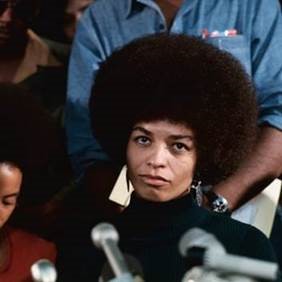
Angela Davis self-identifies as a communist, revolutionary, internationalist, anti-racist, anti-capitalist, feminist, pro-working class and a community builder. She has written numerous books on the issues of class, feminism, race and the prison system. In her ground-breaking book Women, Race and Class she revolutionised the way that the world views feminism, advocating for an intersectional approach, and exposing past feminist movements (such as the suffragette movement and second-wave feminism a la Betty Friedan) for being inherently exclusionary to black women.
In Are Prisons Obsolete, she challenged the prison industrial complex in America, being one of the first theorists to compare the prison system to new age slavery. More recently, she has been a staunch supporter of the BLM movement, and actively encouraged modern feminism to discard the binary structure of gender allowing for the contribution of trans women and non-binary communities within feminism to be recognised.
For me, she was my first introduction to intersectional feminism, enabling me and many others to adopt a radical approach to ending racism.
Gil Scott Heron – Katie Aldworth, EA to CEO
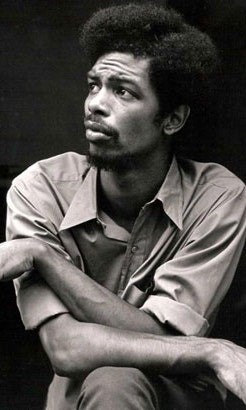
As a young adult, music was as much of an education for me as school or reading was, and keeping his personal life aside, Gil Scot Heron was one of the first artists I ever listened to that taught me about what it means to be black in America. His lyrics are as poignant now as they were when his music first burst onto the scenes in the early 1970s.
He based most of his poetry and lyrics around systemic political and social issues such as police brutality, mass consumerism, racial inequality, media control and the pressures inner-city residents face on a daily basis.
All issues that are still heavily affecting black communities in the western world to this day.
His music was revolutionary within the industry, influencing a wave of fresh new artists to speak out on racial issues plaguing America, through their art and during a time where radical black voices were being vilified and silenced.
It’s said that because of this, Heron played a huge role in the birth of Hip Hop.
Constantly criticising the media, his 1971 song 'The Revolution Will not be Televised' was defined by him as revolution being something that happens from within, with corporate media and television playing no beneficial role in it.
Words that for me, were a lesson then and even more so now.
‘‘The first change that takes place is in your mind. You have to change your mind before you change the way you live and move’’.
Anthony Ray Hinton – Natalie John, Finance Assistant
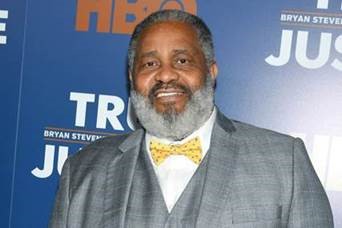
After reading his bestselling book The Sun Does Shine: How I found life and freedom on death row I was instantly inspired by Mr Hinton. In a world where he was seen as lesser, condemned to death row for a crime he did not commit, Mr Hinton did not ever lose faith. On countless occasions he remained strong, taught those who were incapable of loving those who are different to them how to love.
He also set up his own book club in prison, inclusive of all, which resulted in the men on death row in Jefferson County Jail forming a brotherly bond. He managed to strip away some of the racist ideology engrained into some of these men’s minds and taught them love, compassion and equality.
After spending 28 years innocently on death row, constantly tested, belittled and abused, he came out the same, if not a better man.
His kindness and consideration inspires me daily to forgive and empathise, especially with those who are not as knowledgeable as we are.
Ed Moses – Rui Domingues, Director of Finance and Operations
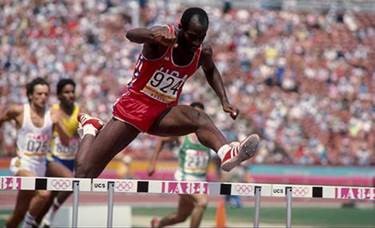
As an (okay) hurdler in the 1980s, my hero was Ed Moses. He was a US 400m hurdler and, between 1977 and 1987, he won 122 consecutive races and set the world record four times.
As well as being an exemplary athlete, he campaigned for athletes to be paid and to still be able to compete in the Olympics, he advanced drug testing in athletics as an administrator in the sport, and he was the first Chairman of the Laureus Sports for Good Foundation, working to assist disadvantaged youths around the world through sport.
A true example of how to use your success to make the world a better place for those who follow.
Toni Morrison – Joanna Strumilowska, Conference Programme Developer

“Oppressive language does more than represent violence; it is violence; does more than represent the limits of knowledge; it limits knowledge” Toni Morrison, 1993
As a great fan of books from my early childhood one of my most beloved (pun not intended) writers that I have ever read is - and will always be - the great Toni Morrison. Her books range from shocking dramas to fiery love stories and poetic period pieces, dealing with complexities of black lives and womanhood, where each character is brought to life with her unparalleled brilliance and style.
Toni Morison was not only a prolific, multiple award-winning writer (Nobel Prize and a Pulitzer among many others) but an activist, who always considered herself as a writer who wrote about the lives of black people and for black people.
I was about 16 years old when I first read one of her books (The Bluest Eye) and I can honestly say that she has changed and enriched my world forever.
We hope you enjoyed reading our list! Who would you add and why?